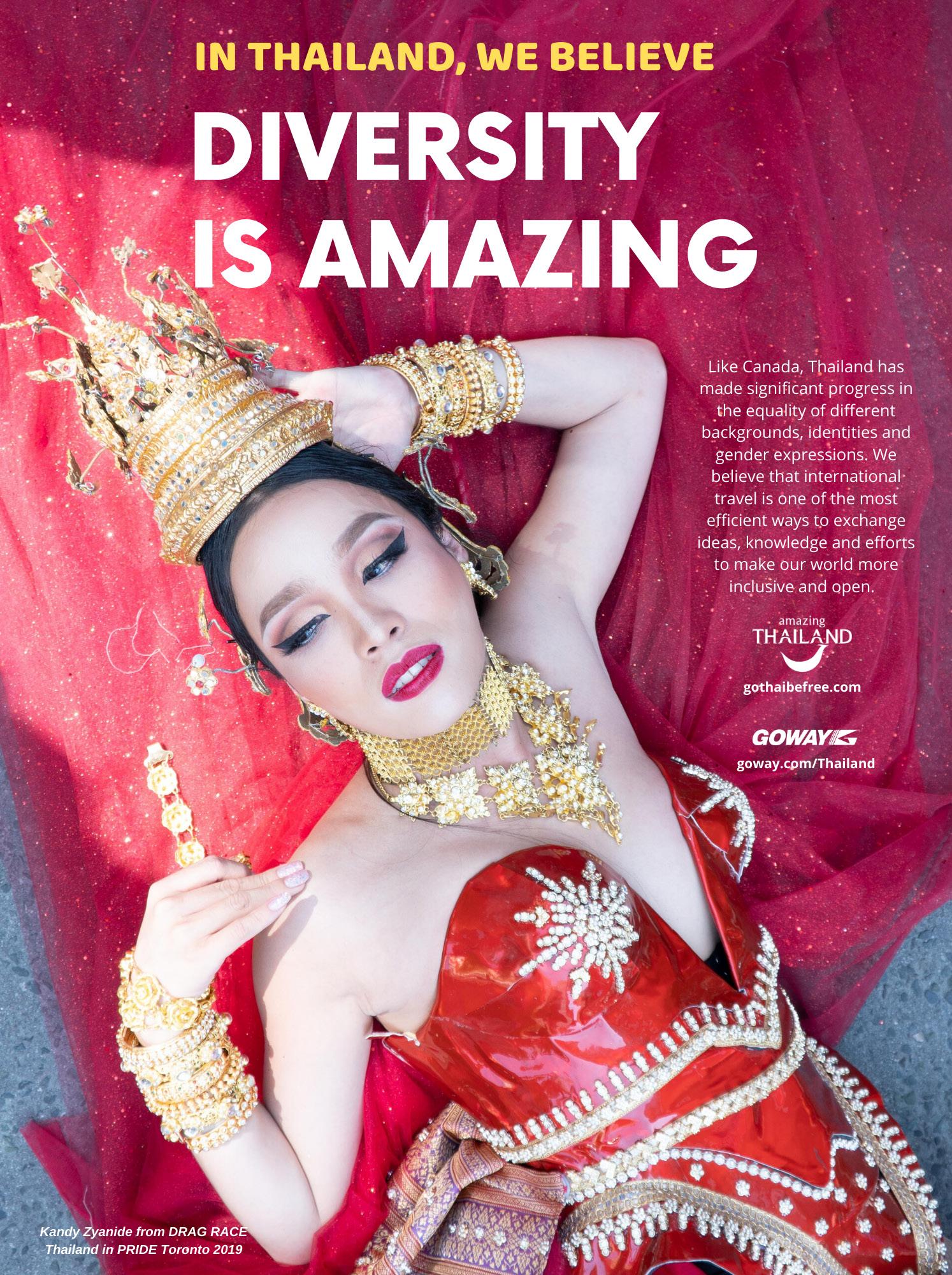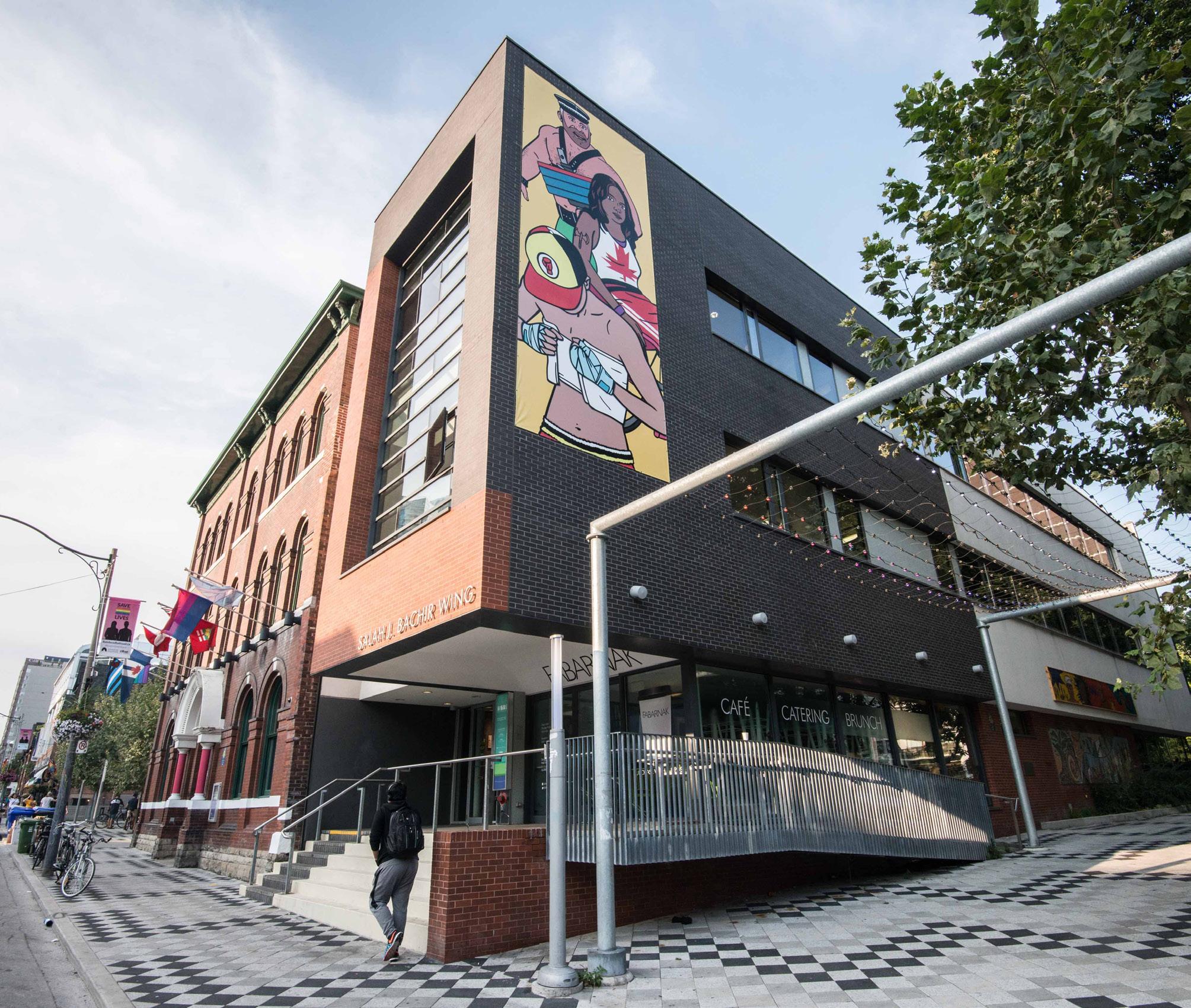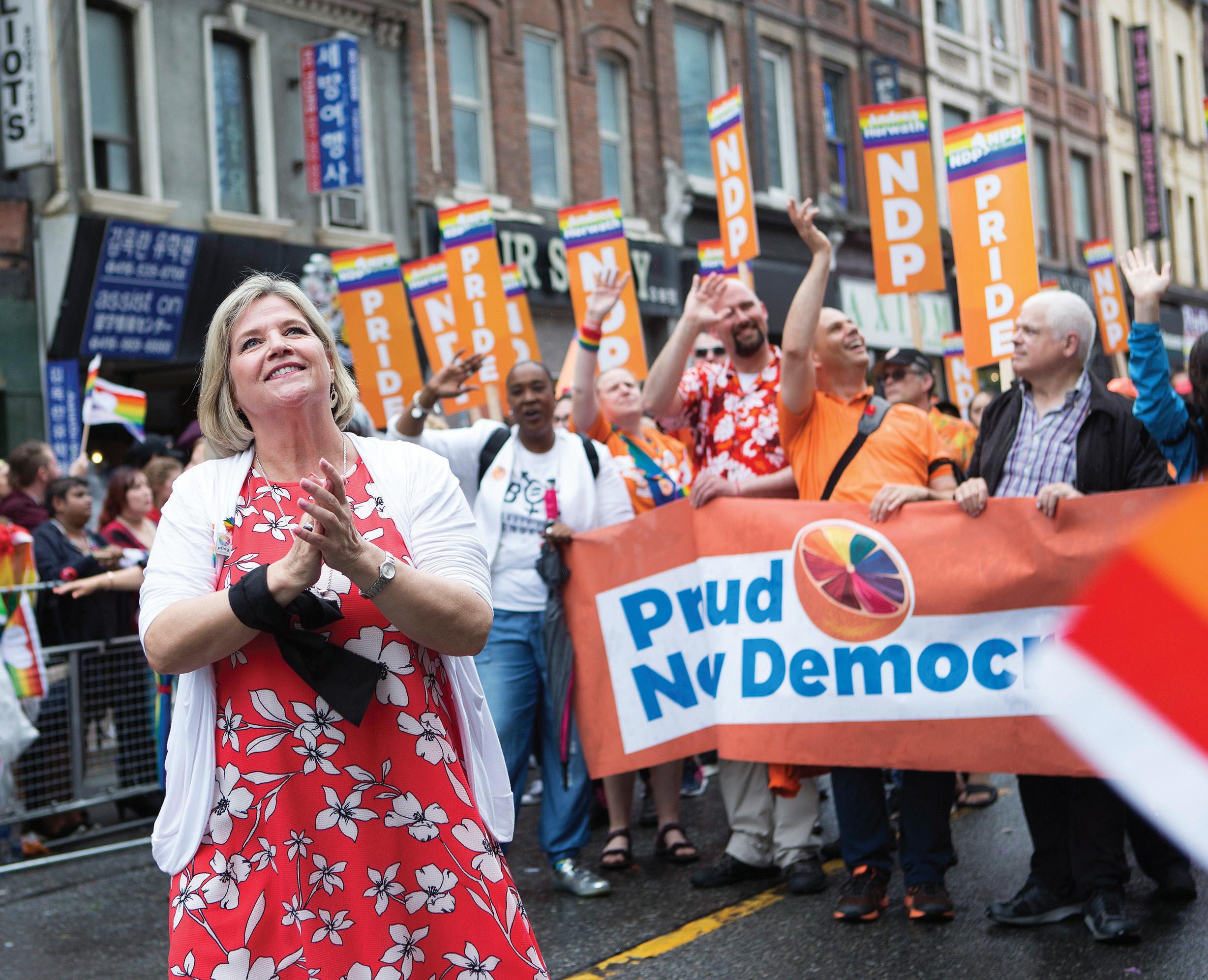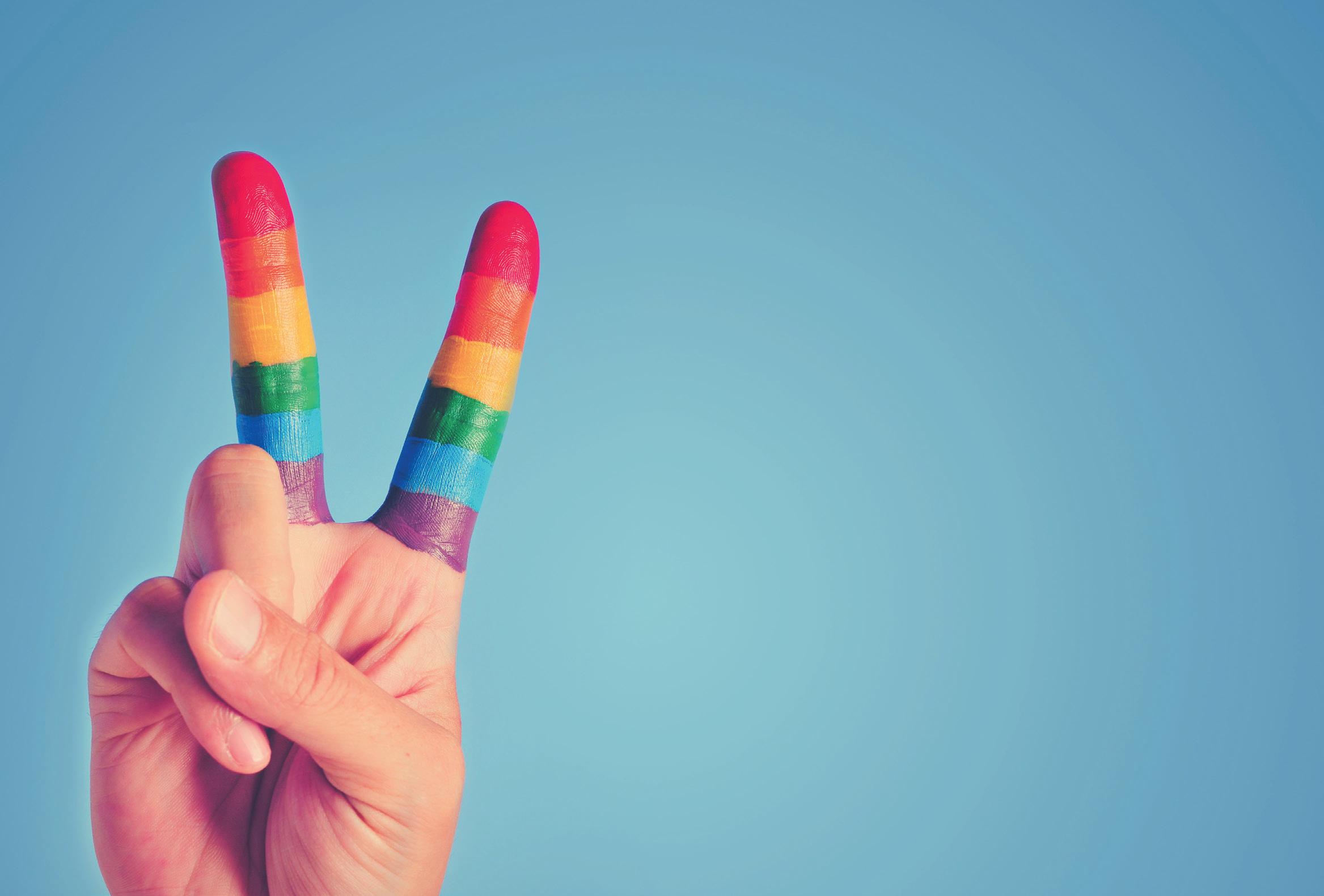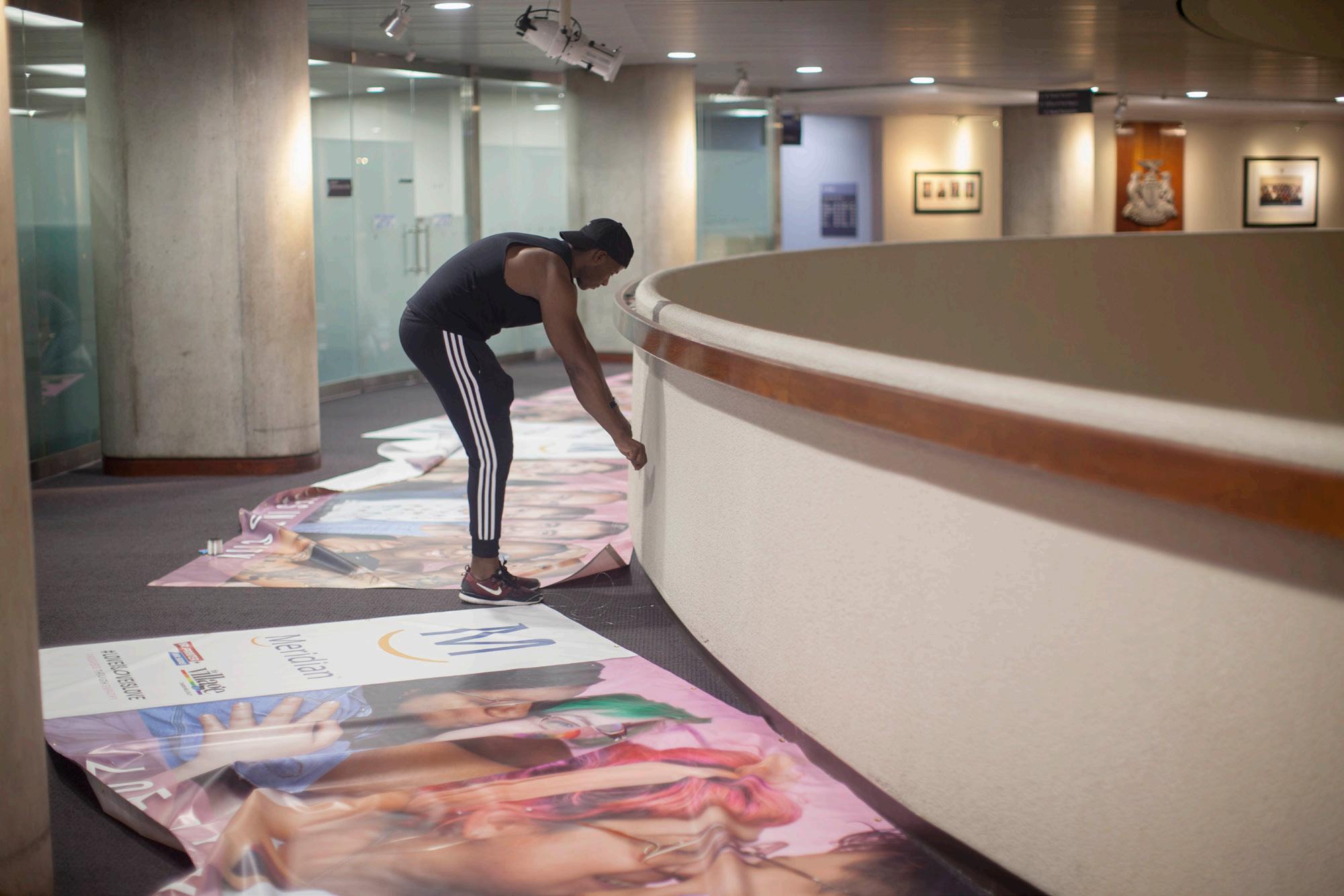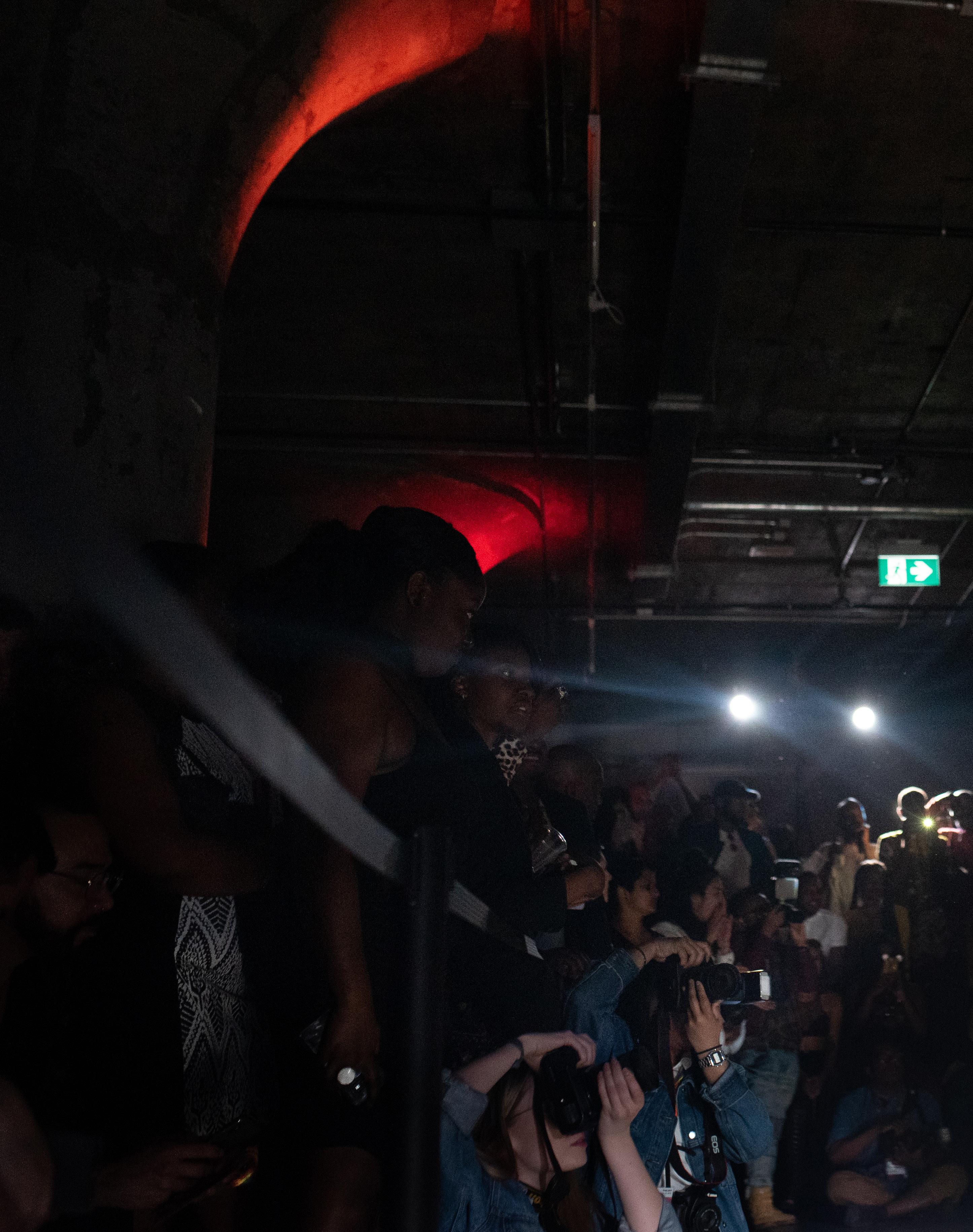PRIDE AT WORK
WAITING FOR SOMETHING TO HAPPEN Sometimes the most important moments happen before the event begins By Colin Druhan
My most vivid memories of Pride are never of the parades, but of the people I met before the parade ever started. That’s where I have the most memorable experiences: just waiting for something to happen. I had one of my most formative Pride experiences when I was en route to the Toronto Pride Parade shortly after my arrival in Ontario from Nova Scotia, where I grew up. I lived in a part of Toronto that, at the time, was not festooned with rainbow flags. If you’d asked people in my neighbourhood, I don’t think many would have known it was Pride at all. That might have contributed to the attention I was getting as I minced down the steps of a subway station in an outfit that left little to the imagination and that screamed I was headed somewhere queer (or at least festive).
JULY / AUGUST 2020
My face reddened with every hurtful comment I heard. I was barely an adult and this was the early 2000s, so I was not raised in the culture that encourages sassy clapbacks to assholes. My strategy back then was to keep my head down and to not respond. Rise above. Never engage. Stay safe. I went to the end of the platform hoping to get some distance from other people, straight people. Two guys followed me. At first they acted like they just wanted to ask questions about the parade. Where is it? What time does it start? Then they got uncomfortably close. Their questions persisted and came so quickly and sharply I knew they weren’t actually looking for answers: Why are you even going there? Why are you proud to be a faggot? What’s wrong with you? Then I heard someone else. “Hey, I thought you got lost!” A butch woman lumbered towards us. I had no idea who she was, but I saw one thing that gave me comfort. Her shirt was covered in indiscernible buttons, but one stood out, plain as day. In all caps it read: DYKE. “I’ve been waiting for you forever!” she said with a wink, as if she knew me. To the guys hassling me, the fight now looked a little more even – two on each side. It was no longer worth their effort, so they backed off. I’m absolutely sure she told me her name, but I don’t remember it. We didn’t exchange contact information. I was too shaken to think of it and while this wasn’t before cellphones, it was definitely before I owned one. We talked the whole ride to Yonge Station. Well, she talked and I listened. “When you see somebody giving one of us a problem, it becomes your problem too,” she said. “There’s a lot of bad people out there, so we need to be the good ones.” She stayed with me until we got to the parade, where we went our separate ways. We 8
IN MAGAZINE
didn’t become lifelong friends. She wasn’t a high-profile public figure or community leader. She was just a person who saw another person in trouble and decided to help. It wasn’t a huge burden for her to take on. But she made a difference early on in my life as an out queer adult. That incident doesn’t stand out to me because it was the first time I was accosted or harassed – I’d faced homophobic harassment that resulted in real violence before that – and it definitely wasn’t the last time I felt threatened. It has become such an important memory for me because it was the first time I felt that an entire community of people I didn’t even know was behind me and ready to take action to protect my safety just because we had something in common. Because I now work for a queer and trans advocacy agency, I get to travel to a lot of Pride festivals every summer. For the past several years, I’ve been lucky enough to attend the Halifax Pride Parade with my parents, who still live in Nova Scotia. That’s not something I ever could have imagined doing when I attended that parade as a teenager and young adult. Back then it was a much shorter route, it was off the beaten path and it attracted significantly fewer spectators. It’s been so inspiring to see my parents become such vocal supporters of our communities, often through attending the parade. To their delighted surprise, among the marchers they’ve seen many of the unions to which they belonged over the course of their respective careers. They’ve pointed out all of the people they know as these people walk past with their community groups, employers or places of worship. They (sometimes embarrassingly) introduce me to complete strangers as their son, of whom they are incredibly proud. These are the moments that stand out to me the most, when I get to talk to people I would not have otherwise met. Here’s another vivid memory: two new parents, both of whom were straight and cisgender, told me about why they brought their baby daughter to the parade for the first time. “Whoever she grows up to be, I want her to remember coming here. I want her to know we support her no matter what,” the father told me. I’ll never forget that simple statement because it reflects the attitude I think our communities need to succeed. Throughout my career I have seen how disconnection from one’s family sentences many queer and trans youth to lives of poverty. I know the toll that takes on our communities’ social support networks. I’ve seen how racism and other forms of discrimination pervade the systems in those networks, leaving so many in our communities behind as a chosen few gain progress.


